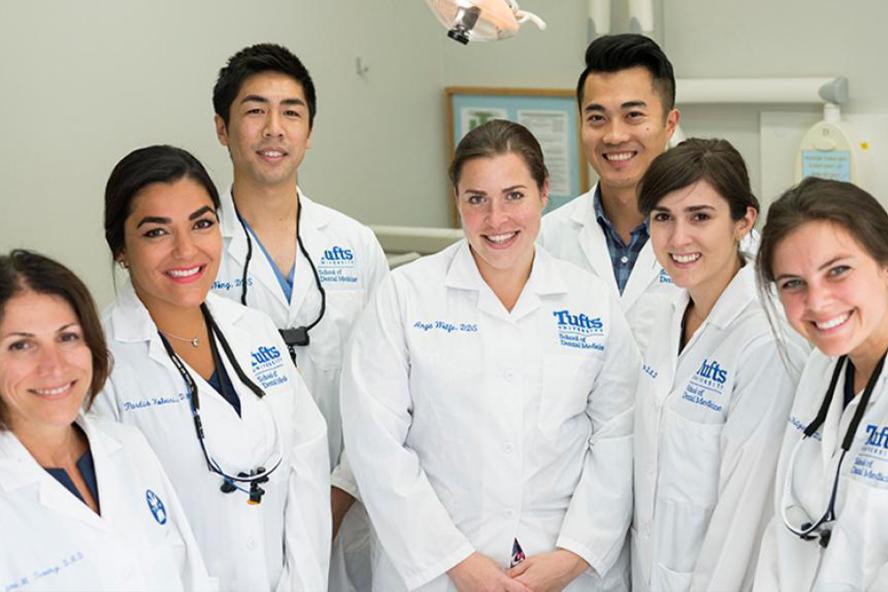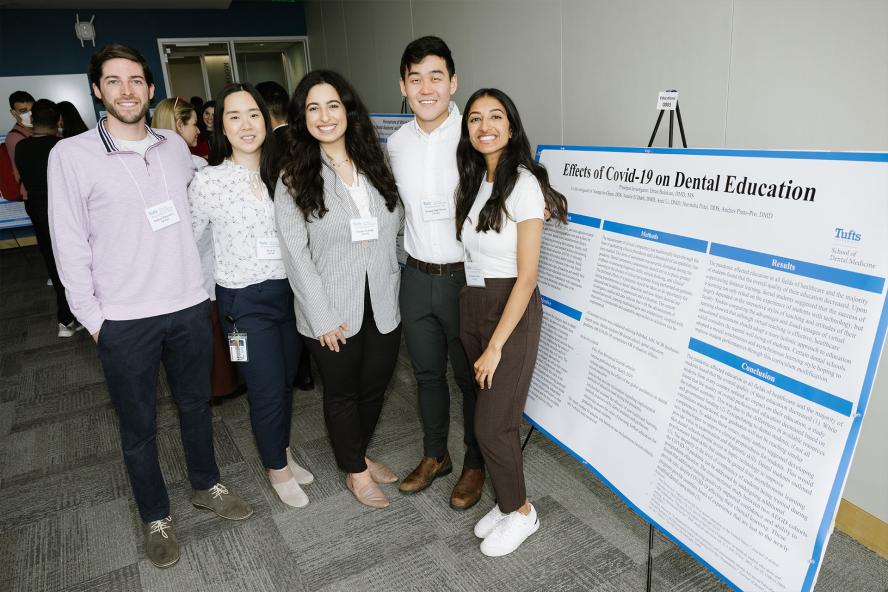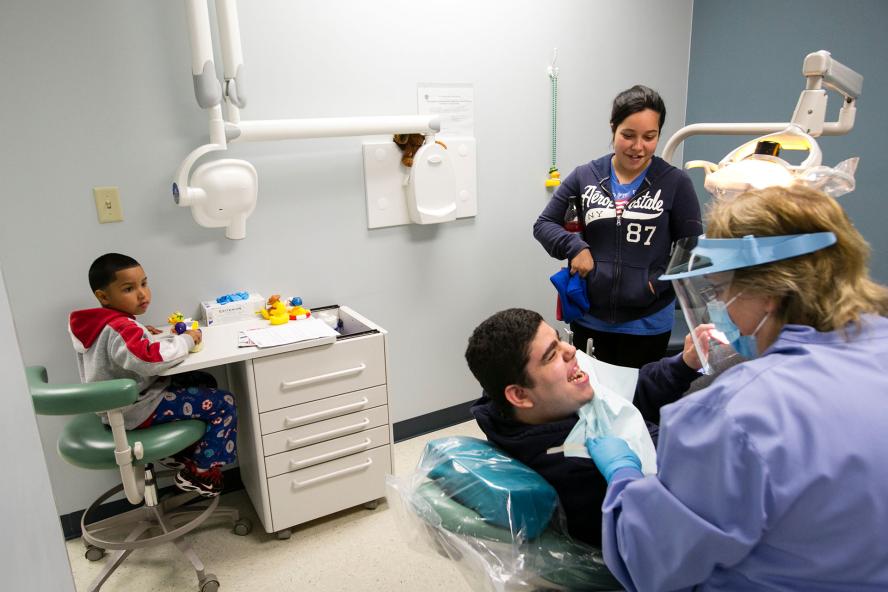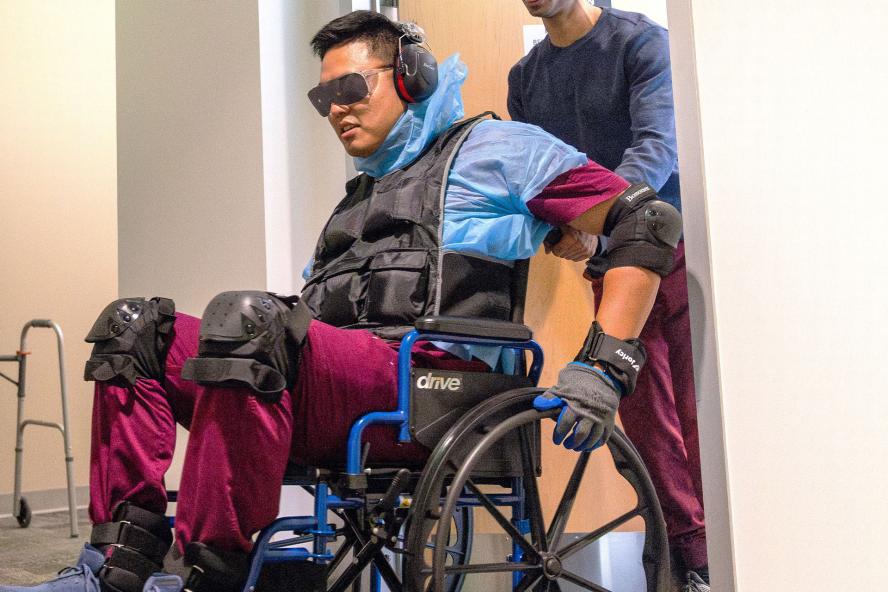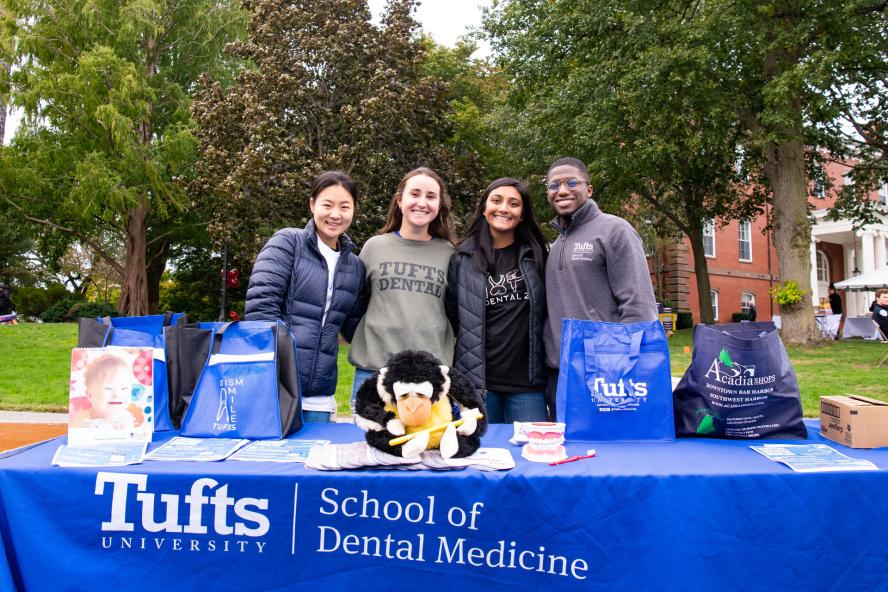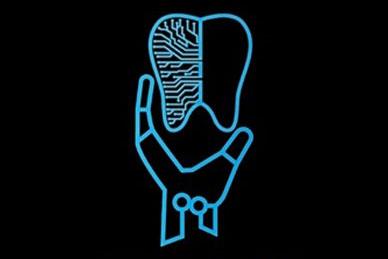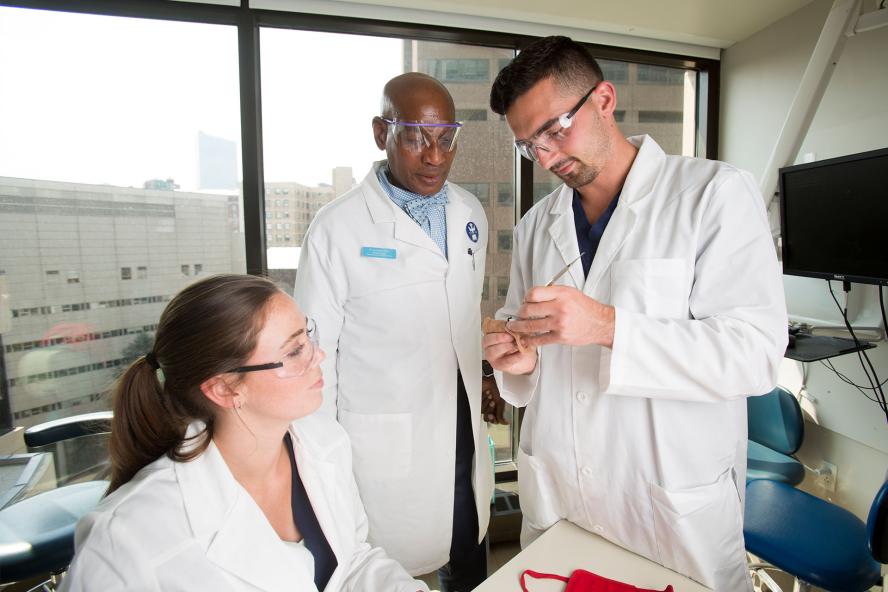
Department of Public Health and Community Service (PHCS)
Welcome
I am delighted that you have taken the time to learn more about public health, community service, service-based experiential learning, epidemiological and health services research and about the educational opportunities that PHCS provides to our students. Our state-of-the-art facilities at Tufts School of Dental Medicine are vibrant and dynamic and our enthusiasm about population health is infectious!
Please feel free to reach out to any of the staff or faculty with any questions.
Athanasios (Thanos) Zavras, DDS, MS, DrMedSc
Delta Dental of Massachusetts Professor
Chair, Dept. of Public Health and Community Service
Associate Dean for Community and Global Affairs
Program Overview
Bringing a commitment to socially responsible dental education, patient care, research, and community engagement, the Department of Public Health and Community Service fosters optimal health and quality of life through population-based oral health disease prevention practices and healthy lifestyle behaviors.
Reflecting Tufts University’s mission of community service and citizenship development, the Department provides comprehensive instruction and conducts research on a wide array of public health topics. Its activities serve to develop professional models of social responsibility for future dentists; understand the interplay and impact of social determinants of oral health; and elucidate the complex interactions among individuals, communities, caregivers, and healthcare provider groups.
DPHCS offers extensive didactic and experiential learning and outreach programs in public schools, geriatric/senior centers and communities across the globe, bringing prevention education and quality services to patients in need of dental care.
Along with teaching predoctoral DMD students in the classroom, DPHCS faculty have oversight of our five-week Community Service Learning externship, community-based oral health prevention and engagement, Global Service Learning, health communication, education and promotion specialty, Geriatrics/senior care, and Special Care in Dentistry.
Postdoctoral training programs of the Department include:
- Advanced General Dentistry (GPR/AEGD);
- General Practice Residency (GPR or hospital dentistry);
- Dental Public Health
Population-based research at PHCS uses data sciences and large database analysis to focus on systems integration and systems evaluation; the role of language as a barrier to care; community-based training and evaluation to increase diversity and inclusion among the workforce; epidemiology of oral disease; assessment of inter-disciplinary practice; and health services research. PHCS scientists and faculty maintain active collaborations with colleagues at Tufts Medical school, the Tufts CTSI, the Tufts Data Intensive Sciences Center (DISC) and others.
